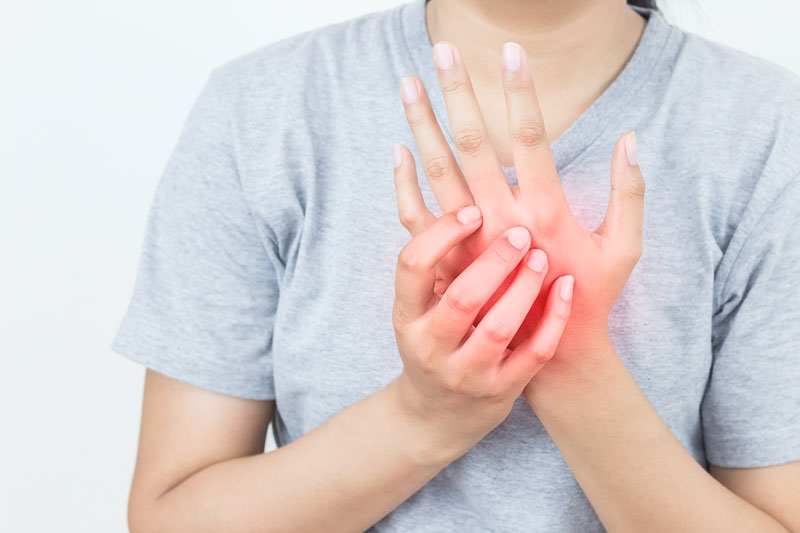According to the U.S. National Library of Medicine, Charcot-Marie-Tooth disease is a group of progressive disorders that affect the peripheral nerves. Peripheral nerves link the brain and spinal cord to muscles and to sensory cells that can detect feelings such as touch, pain, heat, and sound. If peripheral nerves are damaged, it can result in loss of those sensations and deterioration (atrophy) of muscles in the feet, legs, and hands. Charcot-Marie-Tooth disease usually begins to present itself in adolescence or early adulthood, but onset may occur anytime from early childhood through late adulthood. The USNLM reports that the earliest symptoms of Charcot-Marie-Tooth disease involve balance difficulties, clumsiness, and muscle weakness in the feet. People with this disease will often have trouble flexing the foot or walking on the heel of the foot. These difficulties may cause a higher than usual step and an increased risk of ankle injuries. The symptoms can be severe and may differ significantly from person to person, even between family members.
If you’re experiencing any of these symptoms, call Well Being Neuropathy Relief Center in Roseville at (916) 945-9800 for long-lasting neuropathy pain relief solutions. We offer different nonsurgical procedures that target the direct cause of your symptoms, and we’ve helped many patients experiencing neuropathic pain find relief. Call us to schedule a consultation and take the first step to getting back your life.
Charcot-Marie-Tooth is identified as hereditary motor and sensory neuropathy. There are a few types of this disease:
- Type 1: characterized by abnormalities in myelin, the fatty substance that covers nerve cells, protecting them and helping to conduct nerve impulses. These abnormalities slow the transmission of nerve impulses.
- Type 2: characterized by abnormalities in the fiber, or axon, that extends from a nerve cell body and transmits nerve impulses. These abnormalities diminish the strength of the nerve impulse.
- Dejerine-Sottas syndrome (aka Type 3): a term sometimes used to describe a severe, early childhood form of Charcot-Marie-Tooth disease. Researchers often classify it as a separate disorder characterized by peripheral nerve problems, deafness, and vision loss.
- Type 4: affects either the axon or myelin and is distinguished from the other types by its pattern of inheritance. In intermediate forms of Charcot-Marie-Tooth disease, the nerve impulses are both slowed and reduced in strength, probably due to abnormalities in both axons (nerve fiber) and myelin (insulating sheath around many nerve fibers).
(this list was compiled from information found on Genetics Home Reference)
While your doctor examines you, they may check for certain signs to get a diagnosis, including:
- Signs of muscle weakness in your arms, legs, hands and feet
- Decreased muscle bulk in your lower legs, resulting in an inverted champagne bottle appearance
- Reduced reflexes
- Sensory loss in your feet and hands
- Foot deformities, such as high arches or hammertoes
- Other orthopedic problems, such as mild scoliosis or hip dysplasia
(this list was compiled from information found at https://www.mayoclinic.org)
Currently, there is no cure for Charcot-Marie-Tooth disease, though the disease progresses slowly and doesn’t affect how long a person lives. There are also methods to help manage the symptoms, including medications that can help control the pain from the muscle cramps or nerve damage. Other ways to manage the disease include physical therapy to help prevent muscle tightening and loss; Occupational therapy, since weakness associated with the disease can make it difficult to everyday things like buttoning up a shirt or writing; and lastly, patients with this ailment can get help from orthopedic devices, which can help with everyday mobility. At Well Being Neuropathy Relief Center in Roseville, we’ve successfully helped our patients maintain the symptoms of peripheral neuropathy and we’re dedicated to helping you get back to enjoying everyday life pain free. If pain from nerve damage is affecting you or someone you know, call our office in Roseville at (916) 945-9800 to schedule a consultation with one of our doctors.

